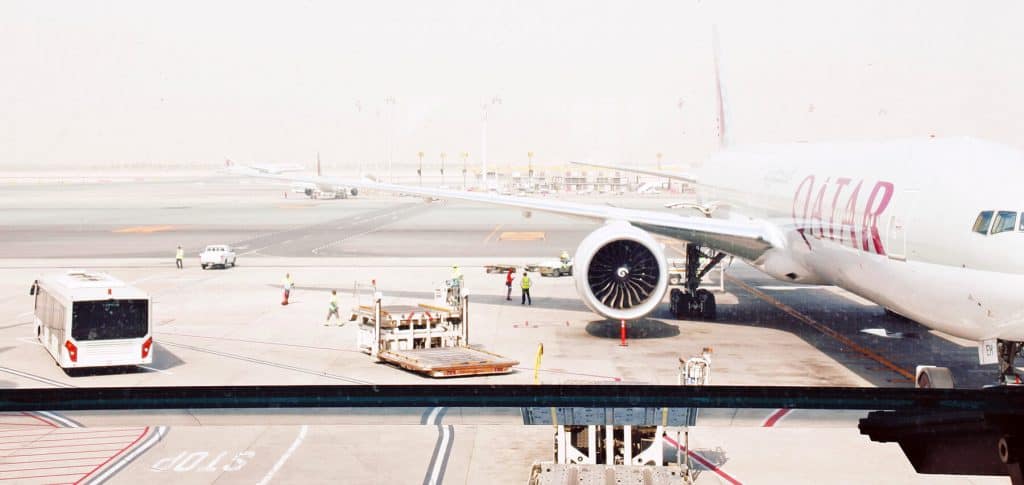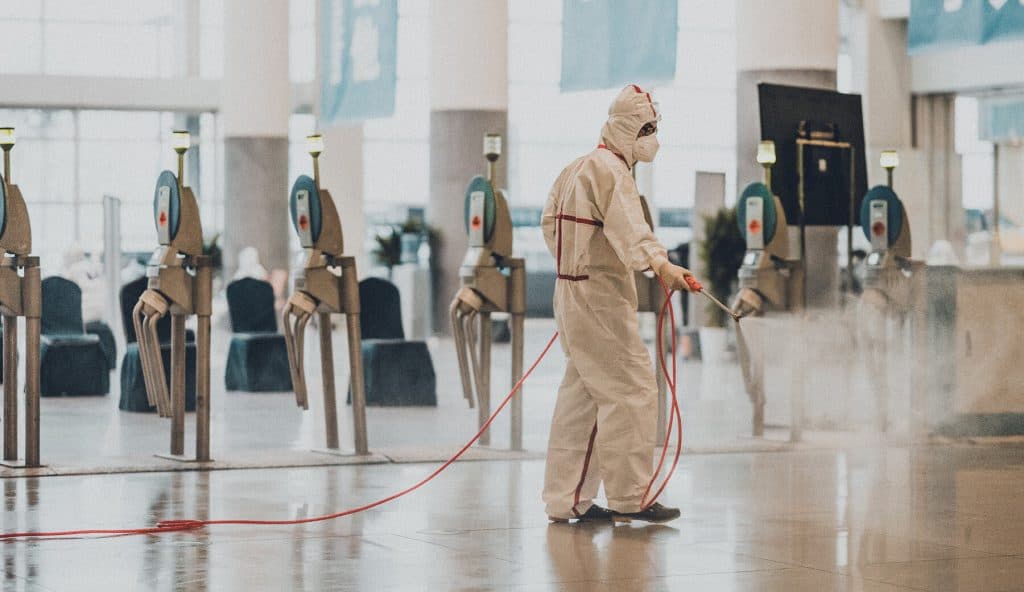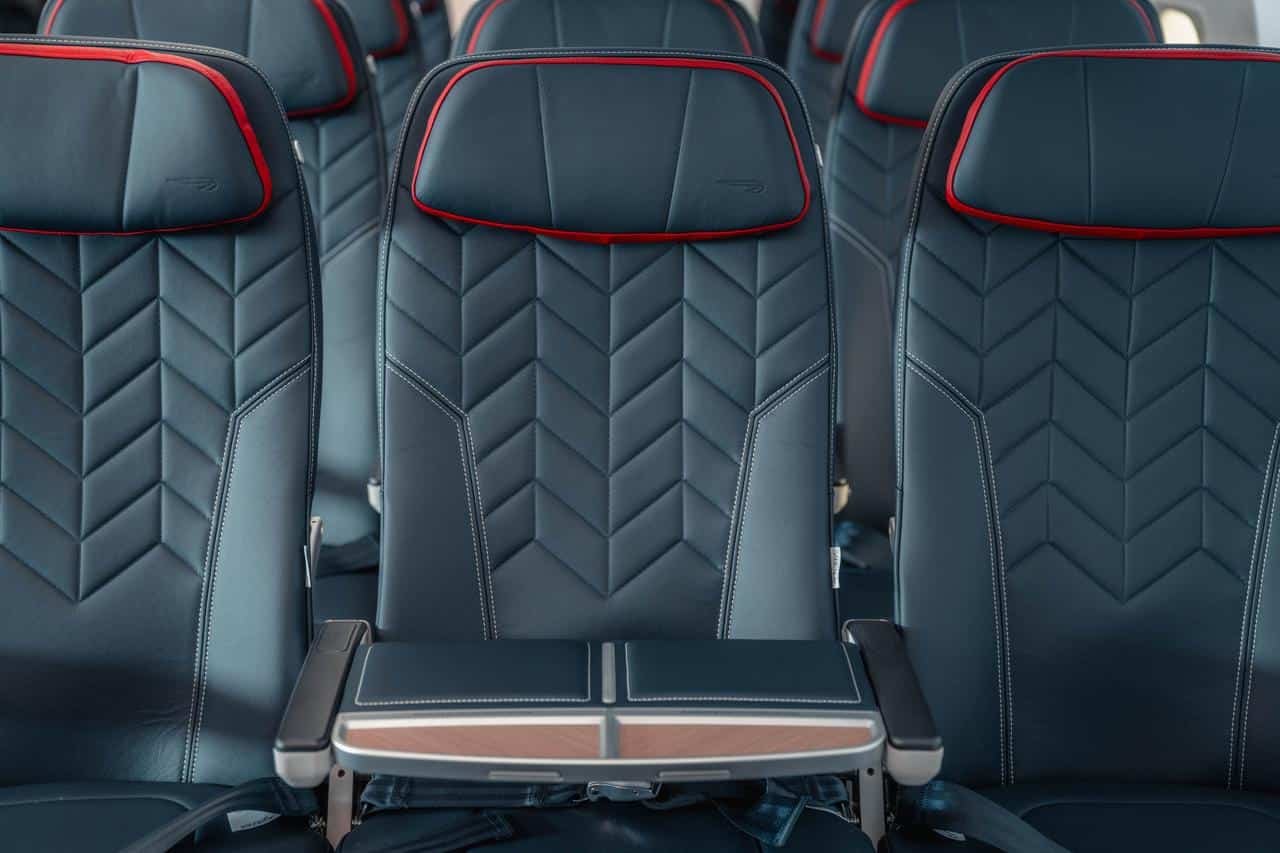In the wake of Covid-19 and its massive effect on many industries, including air travel, many are wondering when – or if – we will be able to return to regular, safe air travel with any kind of confidence in our safety.
It seems good news is in the air.

Up in the Air
There was a time when air quality on aircraft was poor. Early versions of ‘canned air,’ public smoking, poor ventilation systems, and other factors meant that air quality regulations on aircraft were less strict than in many prisons!
But that was a long time ago.
Modern airlines, even before we had to deal with C-19, take great care to provide a safe and comfortable environment for their passengers. Some airlines are better than others of course, but even the industry as a whole has elevated their game when it comes to clean air and safety.
Today, air filters on some aircraft – such as those used by Qatar Airlines’ aircraft – are similar in quality and effect to those used in hospital operating theatres. These systems use HEPA filters to remove 99.9% of bacteria, viruses, and other contaminants. Think of them like high-quality hand sanitiser, but for the air you breathe.
On Solid Ground
Some travellers’ main concerns revolve not just around the aircraft themselves, but on memories of the airport experience: queueing up, front to back, in zig-zag lines with dozens of others. Standing shoulder to shoulder in cramped elevators, touching handrails on escalators or moving walkways, and having to wait in crowded lounges until boarding time.
Airports and lounges vary, of course, but across the board, steps have been taken to increase social distancing; quality, frequency and intensity of cleaning efforts; and level of staff training to ensure the highest safety possible for passengers and air industry employees alike.

Some airports, for example, have increased sanitisation and disinfection of surfaces and suspended the running of elevators, escalators and moving walkways except for those with special mobility needs. Passenger train use has also been suspended. To mitigate the impact of this, airlines use only the closest gates where possible, so passengers walk shorter distances before boarding.
The density of people waiting for check-in has been reduced by marking social distance guidance and allowing adequate time for completion of security measures without crowding. Some airports implement thermal screening of all arriving passengers and crew, and airport clinics are open 24/7 for those who need care.
Moving Ahead
As numbers of travellers increase, these measures will become less practical, but adaptations will be developed and implemented to meet future needs. There is no news of plans to make physical changes (such as Perspex divider screens, etc) – but demand and legislation will drive changes like these.
Safety Devices
Facemasks are mandatory on some public transport, in some countries, and may become the norm for short-haul air travel too – but removal of masks is necessary for eating, drinking, and often sleeping as well, so practicality on longer flights becomes an issue.
For those wanting more space, setups like the Q-Suite, on Qatar Air, provide screens and semi-private spaces for passengers. Though these were in use prior to the C-19 outbreak, and were not designed to protect against transmission of viruses, they do provide some social distancing on aircraft that are equipped with them.
Individual airlines will most likely clamour to match the best measures taken by their competition. This is a dynamic that is great for passengers, as the market will drive high standards and provide the best available safety and comfort measures.
Customer Confidence
According to Matt Pitman, Corporate Account Manager of Qatar Airways, ‘Flexibility of scheduling and the option to cancel in case of health risks like Covid-19 is key. We’ve been adjusting our policies to make sure travellers can book with confidence and that they can make changes easily when the need arises.’
Matt Pitman, Qatar Airways
Since pandemics will not likely be covered under most travel insurance in the future – it simply isn’t sustainable for insurance and travel companies to offer it – this progressive attitude to customer service will be key in raising consumer confidence in booking air travel. In response to this, some airlines are developing policies that allow for voucher exchange upon request, or even for full refunds under certain circumstances.
The End Result
All of these efforts to adapt facilities and policies – and to educate travellers on the advances in air quality systems – will raise general confidence in the continuation of air travel as we move towards the end of the C-19 pandemic and its effects.
Passengers can take to the air again, for both business and pleasure, with the confidence and reassurance that airlines are doing everything possible to continue providing safe, comfortable, and reliable air travel.






